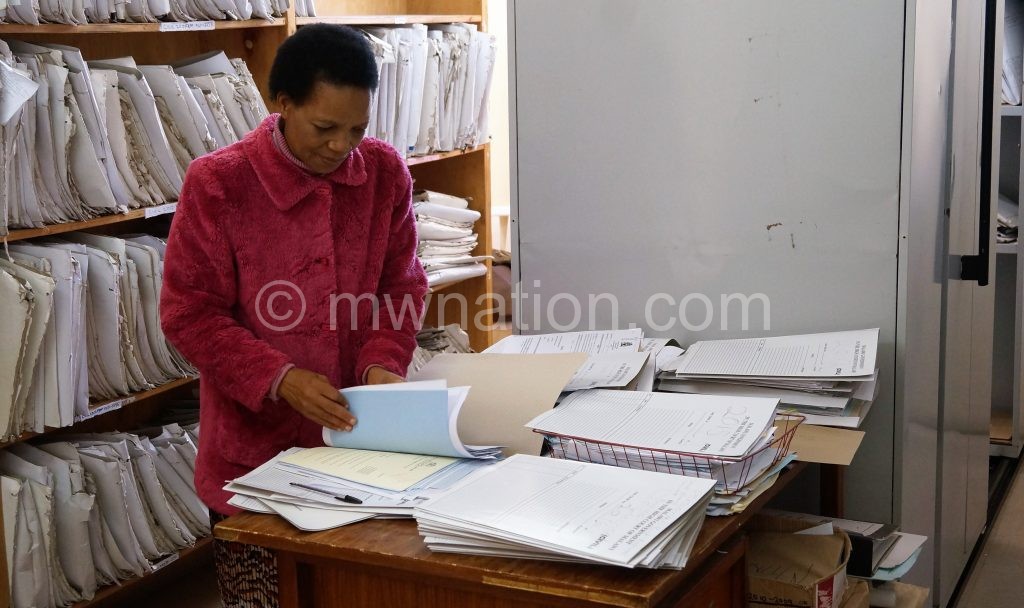New case management system hits a snag
The newly introduced Court Management System designed to streamline judicial processes and ease access to the courts by ordinary Malawians has encountered problems due to lack of equipment and connectivity challenges.
As a result, it is taking too long to file court documents, a development Malawi Law Society (MLS) says is infringing on people’s access to justice.

Some lawyers have told The Nation that while previously documents would be filed manually with the court registry after paying fees and clerks would take them to the registrar’s office for approval, currently the process is being delayed due to the requirement to scan the documents.
With the new system, documents must first be scanned and uploaded and only when the registrar receives a prompt can a file be opened.
“But the scanner keeps malfunctioning. The system has a lot of downtime. So, even if documents are scanned, if the system is down, the registrar cannot access them. You can imagine, I have a client seeking an injunction because they are about to be evicted from their homes but the system is letting us down,” said private practice lawyer Gift Katundu.
The Nation has also learnt that at the High Court registry in Lilongwe, there are close to 10 clerks from the civil and criminal registries using one scanner. At the same time, the clerks have to service judges.
Documents which would normally take a week to be filed and processed are taking close to 30 days as a result of the system breakdowns, according to the lawyers.
The High Court of Malawi Lilongwe district registry has no generator and with the frequent blackouts the country is experiencing, the backlog of unfiled documents is growing by the day.
MLS honorary secretary Khumbo Soko confirmed that they have received complaints about the system’s challenges which its members and other court users are encountering across the registries in the country.
He said: “These are not teething problems. This is evidence that the system was introduced without the necessary infrastructure to sustain it. They [Judiciary] should consider immediately suspending its operation until they have invested in the infrastructure to handle it. Otherwise, this is denying people access to the courts.”
Soko gave an example of widows and children who would like to obtain letters of administration to start accessing deceased estates but the system is letting the people down.
However, MLS says overall, the system was a good idea meant to reduce file losses and digitalise case management for easy access by all registries.
“But the CMS in Lilongwe has not improved service delivery from the High Court at all. In fact, it has taken us 13 steps backwards. In the past it would take about a week for the Court to issue a document, it’s taking about 45 to 60 days. I mean how does one even begin to defend that?” Soko said.
Speaking for the High Court in Lilongwe, Senior Deputy Registrar Justus Kishindo confirmed that the system has challenges among them staff and equipment.
“This is a donor-funded project so we will need to go back to the terms and see if it cannot allow us to get new equipment. But if we are to bring new equipment that will mean new staff because as it is now, personnel are inadequate. The same people tasked with scanning all documents have to be in court as well,” he said.
He said immediate benefits would not be seen now but the system was good for purposes of tracking files and reducing files disappearing.
Judiciary spokesperson Mlenga Mvula also said the institution was aware of the challenges being experienced with the new system.
The computerised case management system is a multi-billion kwacha project funded by the European Union (EU) meant to ease pressure on the Judiciary, especially reducing case backlogs.





